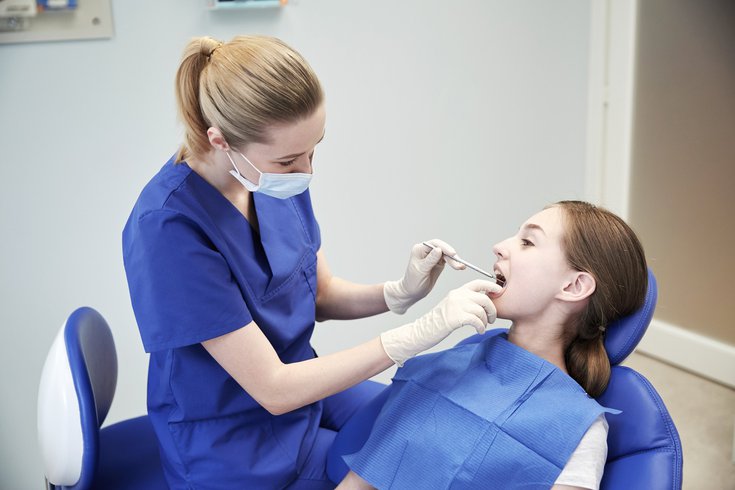
August 12, 2020
 Source/Image licensed by Ingram Image
Source/Image licensed by Ingram Image
The World Health Organization is urging dentists to postpone non-essential procedures until COVID-19 transmission drops significantly. Dental health care workers are considered high-risk for infection.
The World Health Organization is advising dentists to postpone all cleanings, check-ups and other non-essential procedures until COVID-19 transmission rates have significantly decreased in order to reduce exposure to the coronavirus.
Dental workers are considered high-risk for infection because procedures often lead to exposure of saliva, blood and other bodily fluids while in "close proximity to patients' faces for prolonged periods," according to WHO guidelines released Tuesday.
Aerosol-generating procedures are particularly dangerous because they require spray-generating equipment that release micro-droplets into the air, the guidelines state. These droplets can "remain suspended in the air, travel over a distance and may cause infection if they are inhaled."
Spray-generating equipment, including ultrasonic scalers and air and water syringes, is commonly used in most dental procedures.
"Clinical procedures that use spray-generating equipment cause aerosolization in the treatment area, leading to rapid contamination of surfaces and potential for the infection to spread," the guidelines state. "The risk of airborne COVID-19 transmission when (aerosol-generating procedures) are performed can therefore not be excluded."
Last week, the U.S. Centers for Disease Control and Prevention released updated guidelines for dentists. The agency warned of the potential dangers of using spray-generating equipment, saying such tools should be avoided whenever possible. But the agency has not recommend postponing routine procedures.
If an aerosol-generating procedure must be performed, the CDC recommends using high evacuation suction and dental dams to minimize exposure to aerosols. Dentists also are advised to wear N-95 masks when conducting such procedures.
Additionally, the CDC recommends screening patients over the telephone before appointments and utilizing telehealth to limit exposure. Other preventive measures include capping patient-care to one patient at a time, blocking schedules to minimize the number of patients in the waiting room, and checking patients’ temperatures upon entering the facility.
Follow Virginia & PhillyVoice on Twitter: @vastreva | @thePhillyVoice
Like us on Facebook: PhillyVoice
Add Virginia's RSS feed to your feed reader
Have a news tip? Let us know.